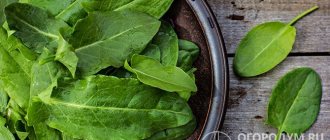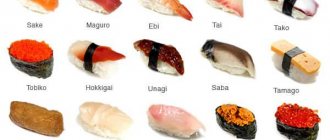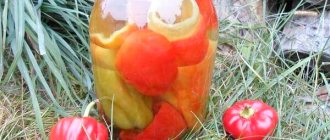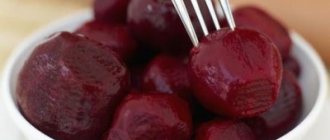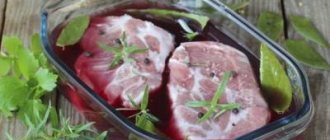Bell pepper is a vegetable that is actively used in cooking for preparing various dishes.
It has a rich composition of useful substances - vitamins, minerals and trace elements.
But it’s not enough to just grow it – you need to try to keep the pepper fresh for a long time.
We will tell you further about how to store bell peppers in the freezer for the winter.
How to choose the right peppers for long-term storage
After ripening, the harvest is usually divided into two groups: which will be stored for several months, and which will be eaten immediately. After collection, the fruits can be wiped with a damp cloth or washed. Gardeners note that pepper is stored well in both cases.
In general, maturation is of two types:
- technical _ When the fruit has reached the desired size, but is still hanging green on the branch. Inside they are dense, less juicy and meaty. Such peppers are suitable for long-term storage until winter and possibly longer. They can be preserved.
- botanical _ The fruits have already acquired color: yellow, red, brown, orange, etc. The pulp is juicy, soft and sweet. These peppers can be canned or eaten raw. They can also be stored, but not more than 2 months.
You can harvest until frost, the main thing is to distribute them according to their degree of maturity.
Errors
Failures with pepper harvesting are rare, but they do happen. The most important mistake of novice housewives is improper preparation of fruits - washing them, after which the vegetables immediately spoil. Storing rotting fruits together with healthy ones is unacceptable; in a matter of days, the entire crop becomes covered with rot and can be thrown away.
Another common mistake is removing the stem from the fruit and storing it indoors. The stalk performs a protective function; in its absence, the pepper begins to dry out.
Otherwise, preserving peppers until winter is not so difficult, the main thing is to be careful, and such troubles will not happen.
Preparation for long-term storage in an apartment
Proper preparation will help preserve the fruits for as long as possible. You need to remove it from the garden using pruning shears, carefully cutting off the tail. Next, the peppers can be either washed in running water or simply wiped with a damp cloth. The second option is suitable if there was no heavy rain or the vegetables were growing in a greenhouse. Then place to dry on a hard, dry surface, out of the sun. The fruits must dry thoroughly, so choose a cool place.
Then, after a few days, they sort and select good and high-quality fruits. The rest is sent for consumption or canning.
Treat the selected peppers with 1% copper sulfate and send them to dry in a dark and cool place for several days. And after preparation, they can be stored for long-term storage.
Adviсe
Both housewives and gardeners will definitely need a few tips on preparing vegetables for the coming winter:
- different varieties of crops should be stored separately, they have different ripening periods;
- If you don’t have a summer house, you can buy peppers at the market. It is better to buy in the fall - at this time late varieties are sold;
- For preparation, take medium-sized peppers - they are compact and do not take up much space in the refrigerator or jar.
Preparing bell peppers for the winter will significantly save the family budget, because vegetables are expensive in late autumn and winter. The pepper will definitely come in handy in the kitchen, so the preparation will not sit out for a long time.
How do you like the article?
Differences in storing bell peppers and chili peppers
You can grow two types of peppers in garden beds: bell peppers and hot chili peppers. However, there are a number of differences in storage.
If the Bulgarian is better and longer after harvesting at technical maturity, and then ripens. Then hot chili peppers are taken for storage at biological ripeness. Because if you pick it at technical ripeness, and even if it turns red, there will be few burning substances in it. The riper the chili pepper, the more heat it contains, which means it tastes better.
Conditions for storing pepper at home
The next step is to create optimal conditions for storage. This is what determines how long the vegetable will last.
What is the best way to store peppers?
Prepared vegetables are carefully laid out in storage containers. It is more effective to use the following options:
- wooden boxes, and wrap each fruit in thick paper, but which allows air to pass through well. You cannot use colored, lined, written on, or newsprint paper;
- cardboard boxes.
And already in this container you can use additional means for storing vegetables:
- plastic bags with a hole for air exchange;
- purified river sand. Line the bottom of the box with newspaper or thick paper, and lay the peppers in layers, covering them with sand;
- ice when stored in the freezer. So it does not lose any vitamins, taste, or color.
Storage Humidity
When storing pepper in enclosed spaces: cellars, balconies or basements, it is important to maintain the humidity level. Optimal is up to 60-75%. At low temperatures and regular ventilation is possible, you can lower it to 55%.
Pepper storage temperature
Peppers retain their freshness and taste best at low temperatures. The best option is to set the temperature from +0 to +2 degrees. Indicators higher or lower have a negative effect on shelf life.
You can also place the prepared fruits in the freezer to freeze.
Illumination
Place the fruits in a dark place where sunlight or artificial light does not penetrate. Light accelerates ripening and increases temperature.
Ultraviolet radiation always has a negative effect on shelf life.
Drying, preservation, semi-finished products, seasonings
Other ways to preserve bell peppers include:
- drying,
- conservation,
- preparation of semi-finished products,
- making seasoning.
Drying
You can dry sweet peppers as follows:
- Remove seeds.
- Cut into pieces.
- Place on a baking sheet and dry in the oven for 3 hours at +50 degrees.
Conservation
For canning you will need the following components:
- sweet pepper – 1 kg,
- water – 1 l,
- table vinegar – 0.7 l,
- honey – 1 kg,
- vegetable oil – 5 tbsp. l.,
- salt – 40 g.
Cooking steps:
- Wash and place the pepper in boiling water. Remove the skin.
- Remove seeds and cut into long strips.
- Place in a jar.
- Place vinegar and honey in hot water. Pour into a jar.
- Add oil.
- Screw on the lid.
Seasonings
Ingredients you will need to make the seasoning:
- fresh bell pepper, peeled – 6 kg,
- fine salt – 1 kg,
- hot pepper – 2 pcs.
Preparation steps:
- Wash the vegetable, remove seeds and tails.
- Grind in a meat grinder.
- Add salt, hot pepper and stir.
- Pour into dry jars.
- Place in a cold room.
Semi-finished products
To make a semi-finished product, you need:
- pepper,
- plastic bags.
Preparation steps:
- Wash and remove tails and seeds.
- Dry thoroughly.
- Cut into lengthwise pieces.
- Place into plastic bags.
- Place in the freezer.
Ways to store peppers at home
There are many different options for storing both bell and chili peppers at home yourself. The choice of method depends on the purpose and variety of pepper.
Bulgarian ones are often used fresh or as complete dishes. But chili is used as a spice, so it is often dried or kept in oil.
How to store peppers in the refrigerator
To store peppers in the refrigerator in the vegetable compartment, choose ripe fruits, otherwise unripe ones will spoil. This way they can last for about 3 months.
After drying, rub the vegetables with vegetable oil to preserve the beautiful, bright skin and juiciness of the pulp. Vegetables will not dry out and wrinkle over time. Next, wrap each fruit in paper or a plastic bag with an air hole.
How to store peppers in the freezer
Peppers with a biological degree of maturity are also suitable for freezing. After washing and drying, cut off the caps with stems and remove the seeds. Cook a little - about 30 seconds. This will make the vegetables soft and elastic. Then dry it a little again and put it in plastic bags.
Store vegetables in the freezer, stacked tightly together.
Keep it fresh
Fresh peppers can be stored in the basement, cellar or barn. In this case, you need to monitor the temperature and humidity. It is better to keep vegetables in wooden boxes, and the layers should be separated by sand, paper or non-coniferous sawdust.
The peppers need to be laid in layers so that they do not touch each other.
Leave it on the bush
You can also store peppers directly on the bush. So you pick off the entire bush, or branches with vegetables, wash and dry properly. Then the twig or bush is hung in a well-ventilated and cool place and left to dry. This option works best with hot chili peppers. This is how the burning substances remain or even become sharper.
As for bell peppers, you can store them in the refrigerator this way or put them in storage boxes in the basement at high humidity and low temperature.
How to dry peppers at home
Chili peppers are easy to dry at home. They are collected from a branch and tied into a bundle, which can be hung in the pantry or decorated on the shelves in the kitchen. They dry evenly, retaining the burning substances.
To ensure proper ventilation, be sure to turn the peppers periodically.
It is also possible to dry bell peppers yourself. To do this, carry out the following preparation:
- After peeling and drying, the pepper is cut and the seeds are scraped out;
- Cut into slices or pieces;
- Rinse in a solution of water and salt for a couple of minutes;
- Place on cheesecloth or in a colander to allow excess water to drain;
- Next, spread on a baking sheet in an even layer and put in the oven. Dry at temperatures up to 75 degrees for 3-4 hours.
Peppers will be used as a seasoning in dishes such as soup, vegetable or meat stew, gravy for cereals and pasta and other dishes.
Features of storing peppers on the balcony
If there is no basement, attic or cellar, then a balcony is suitable for storing bell peppers, especially if it is insulated and you can control the temperature there.
The principle of laying peppers for storage is the same as in the basement. The vegetables are wiped, thoroughly dried and sent to wooden boxes, wrapping each pepper in paper or polyethylene. It is imperative to keep the temperature no more than +2 degrees and not allow it to drop below 0.
Semi-finished products
Also, some gardeners prefer to store vegetables in a prepared form. For this, semi-finished products are prepared. The idea is to make almost ready-made meals that are stored in the freezer and can be taken out and cooked when needed.
This way they can be stored for about a year. The following options are possible:
- Vegetable mix. All ingredients are cut into strips or cubes (peppers, carrots, green peas, corn, onions, broccoli) and mixed. The mixture is poured into a plastic bag and placed in the freezer.
- Stuffed pepper. The cap of the vegetable is cut off and stuffed with minced meat, mashed potatoes, rice with mushrooms, seafood or minced meat with mushrooms. Vegetables are placed neatly in the freezer at a distance from each other for a day to maintain their shape. And then they are collected in bags and placed in layers in the freezer.
Canning
To make your task easier, you can can vegetables. This increases the shelf life to several years. Peppers can be boiled with spices. This option goes great as a side dish to many dishes.
Pepper is used to make lecho with allspice and onions. It can be covered with salt and stored for up to six months. There is an article on the site with a step-by-step recipe for lecho made from tomatoes, peppers and zucchini, we recommend preparing it.
And for future soups and sauces, pepper puree will be useful. Puree the vegetables in a blender, add pepper and salt, vegetable oil and the soup seasoning is ready.
Storage in oil
Hot peppers can be stored in vegetable oil: sunflower, olive and any other. It gets a pleasant aroma and spicy taste. Peppers stay fresh and tasty longer, and also serve as decoration in the kitchen. You can add cloves of garlic.
How to store peppers in the cellar and basement
To keep vegetables in the cellar or basement for as long as possible, organize the right conditions. Important indicators are humidity and temperature.
The premises must be well ventilated, dry and with a temperature of at least 0 degrees. It is best to store them in wooden or cardboard boxes, stacking the peppers in layers. Separate each layer with paper, sand or sawdust.
What not to do?
When organizing fresh storage of bell peppers for a long period of time, the following prohibitions should be taken into account:
- The fruits should not touch each other.
- Fruits with defects should not be sent for storage for future use - such peppers should be used first.
- The packaging of peppers should not be airtight, as this promotes rotting of the fruit. If cellophane bags or cling film are used, holes must be made to allow air exchange and maintain humidity levels.
- You cannot keep the crop in the light, including under artificial lighting.
- The vegetable should not be allowed to be near the harvested apples, as this can accelerate the overripening and even rotting of the peppers.
- It is prohibited to use newspaper sheets for wrapping, as printing ink is harmful to food.
Without careful preparation of the site and the fruits themselves, the harvest cannot be maintained for a long time.
Best varieties for storage
It is best to initially plant varieties that are well transported and resistant to long-term storage, these are:
- Beglitsky . High-yielding variety, dark red color.
- Martin . Cylindrical shape, red color.
- Novy Goshar . The shape is rounded-flattened and red in color.
- Red Baron . From bright red to blue.
- Black cardinal . From red to dark purple.
- Aristotle . The fruits are large, round-cylindrical, dark red in color.



